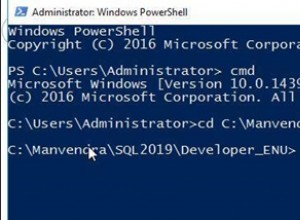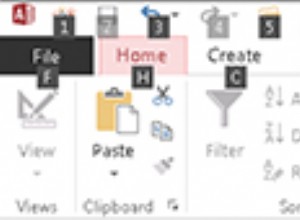Puoi trovare un indice di un elemento cercato usando jsonb_array_elements() with ordinality (nota, ordinality inizia da 1 mentre il primo indice dell'array json è 0):
select
pos- 1 as elem_index
from
samples,
jsonb_array_elements(sample->'result') with ordinality arr(elem, pos)
where
id = 26 and
elem->>'8410' = 'FERR_R';
elem_index
------------
2
(1 row)
Usa la query precedente per aggiornare l'elemento in base al suo indice (nota che il secondo argomento di jsonb_set() è una matrice di testo):
update
samples
set
sample =
jsonb_set(
sample,
array['result', elem_index::text, 'ratingtext'],
'"some individual text"'::jsonb,
true)
from (
select
pos- 1 as elem_index
from
samples,
jsonb_array_elements(sample->'result') with ordinality arr(elem, pos)
where
id = 26 and
elem->>'8410' = 'FERR_R'
) sub
where
id = 26;
Risultato:
select id, jsonb_pretty(sample)
from samples;
id | jsonb_pretty
----+--------------------------------------------------
26 | { +
| "result": [ +
| { +
| "8410": "ABNDAT", +
| "8411": "Abnahmedatum" +
| }, +
| { +
| "8410": "ABNZIT", +
| "8411": "Abnahmezeit" +
| }, +
| { +
| "8410": "FERR_R", +
| "8411": "Ferritin", +
| "ratingtext": "Some individual text"+
| } +
| ] +
| }
(1 row)
L'ultimo argomento in jsonb_set() dovrebbe essere true per forzare l'aggiunta di un nuovo valore se la sua chiave non esiste ancora. Tuttavia, potrebbe essere saltato poiché il suo valore predefinito è true .
Sebbene i problemi di concorrenza sembrino improbabili (a causa della condizione WHERE restrittiva e di un numero potenzialmente ridotto di righe interessate), potresti essere interessato anche ad Atomic UPDATE .. SELECT in Postgres.




